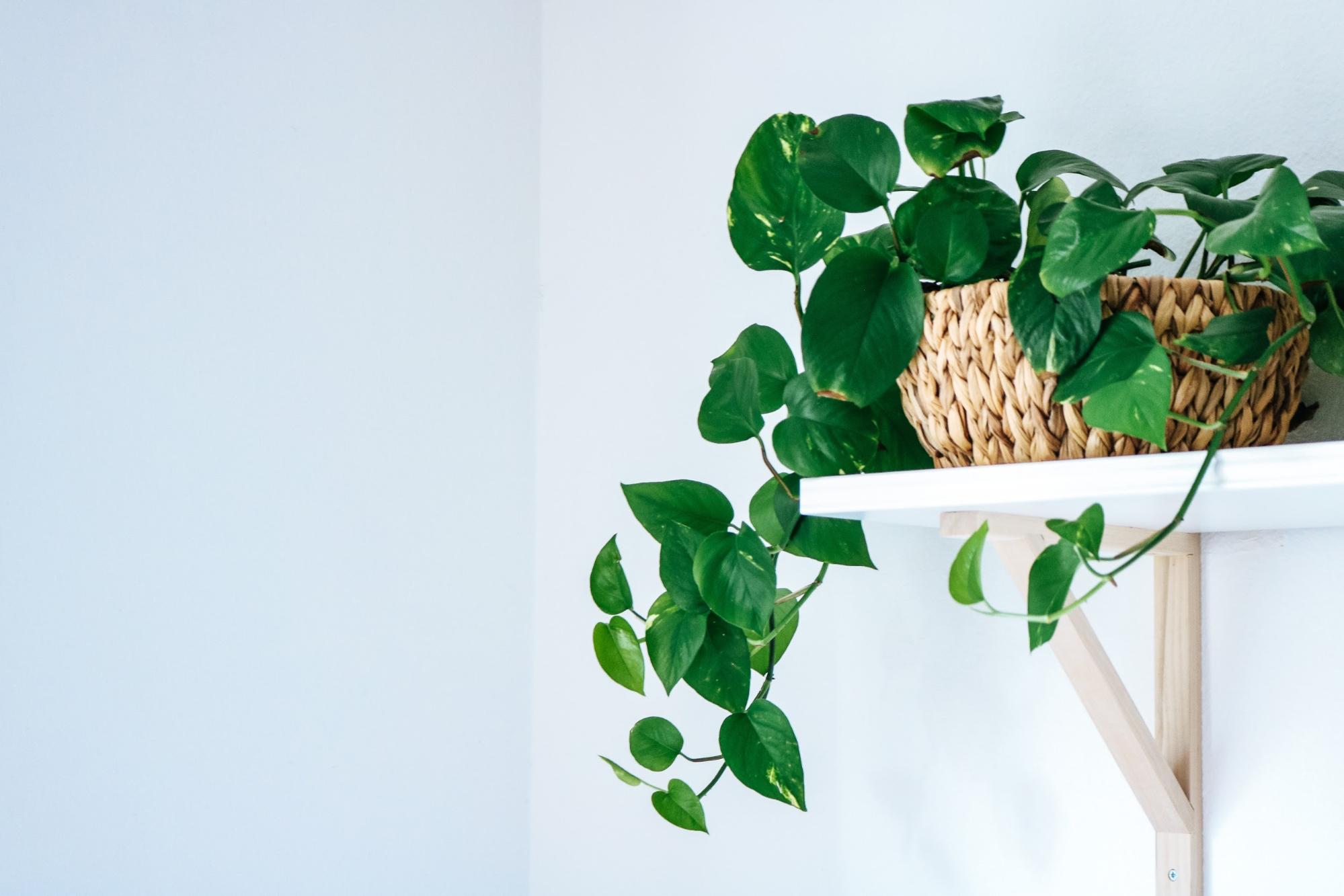
Pothos
French Polynesia
One of the easiest houseplants to grow, Pothos is native to the tropical regions of Southeastern Asia and the Western Pacific Islands. It is also called devil's vine or devil's ivy because it stays green even when kept in the dark and is almost impossible to kill. It is one of the top houseplants for improving indoor air quality, making home and office environments cleaner.
Though lacking blooms, its green, heart-shaped leaves with splashes of yellow appeal to a wide range of tastes and decors. It is commonly grown as a hanging plant and can make a great addition to your bathroom or office because of its tolerance to low light.
Care:
Pothos Plant is a notoriously hardy plant that can thrive even when neglected. Like all plants, however, it requires regular water, sun or artificial light, proper nutrition, and air circulation.

Sunlight: Pothos likes a wide variety of light conditions but they do not do well in direct sunlight. Since, only the green parts of the leaves can make energy for the plant, a highly variegated pothos must be able to get enough light for energy or its growth will slow or the leaves will compensate for the lack of light by becoming more green.

Water: Water every 1-2 weeks. Too little water is a common cause of stunted Pothos plants. Overwatering is also common in the list of Pothos problems and can lead to root rot. Discard excess water from the saucer underneath the pot so that plants are not sitting in water.

Temperature and humidity: Grows best in temperatures of 21 to 32 C and prefers high humidity

Seasonality: Growing season from spring to fall

Size:
6-10 feet long; can grow as long as 30-50 feet in their native habitat.
Common Issues:
Pests by their feeding activity can cause malformed leaves and leaf drop. Mealybugs and scale are the most common insect Pothos problems.
Precautions:
Use a cotton swab dipped in rubbing alcohol to kill the pests. This may seem tedious but if you check the plant weekly, you will likely only find a couple of the insects, making the plant easier to treat.
Pet friendliness:
Toxic for cats and dogs. If ingested can lead to mouth and throat irritation, drooling and vomiting.

